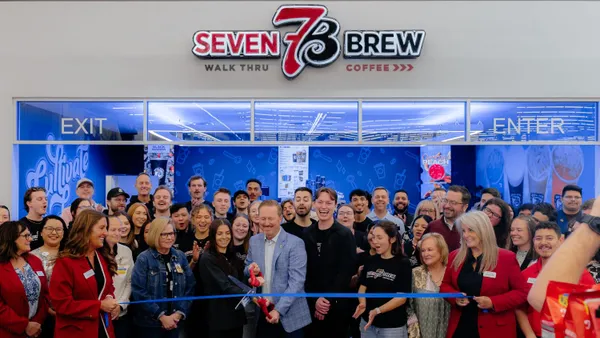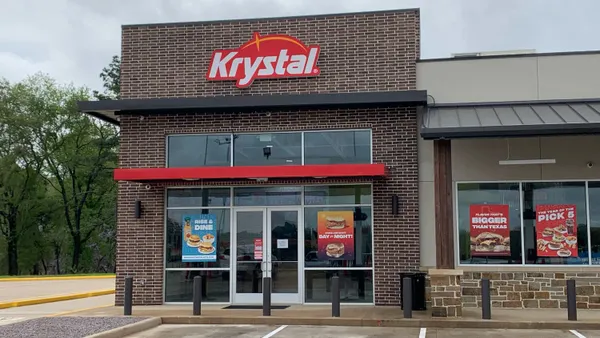Dive Brief:
- Krispy Kreme promoted Josh Charlesworth to president and CEO, effective Jan. 1, the company said Monday in a press release.
- Charlesworth has been with the company since 2017 when he joined as chief financial officer, according to his LinkedIn profile. He is currently Krispy Kreme’s global president and chief operating officer.
- Michael Tattersfield, who has been CEO since 2017, will remain on the company’s board and serve as a senior advisor and brand ambassador. He will remain a significant investor in the company, according to the press release.
Dive Insight:
Charlesworth brings decades of experience to his new role at the doughnut chain, where he has held several leadership positions. Charlesworth was promoted from CFO to CFO/COO, a position he held until 2022 when he was promoted to his current role. Prior to joining Krispy Kreme, Charlesworth worked in various positions at Mars for over 14 years.
Under Tattersfield’s leadership, the company has undergone “significant expansion and transformation, resulting in revenue growing from $550 million in 2016 to more than an expected $1.6 billion in 2023,” the company said in the press release. The brand has implemented an omnichannel sales strategy and asset-light distribution model leading it to four consecutive quarters of double-digit organic revenue growth, alongside global expansion, according to the press release.
During Q2 2023, Krispy Kreme increased its net revenue by 9% to over $408 million while organic revenue increased 11.4%, according to an earnings release. The growth was led by the U.S. market, where sales channels including doughnut and cookie shops, Delivered Fresh Daily doors and e-commerce contributed to the chain’s 12.7% organic growth during the quarter.
Krispy Kreme, which returned to the public market in 2021, has been testing a partnership with McDonald’s, where it delivers doughnuts to 160 of the QSR chain’s restaurants for consumers to purchase. Tattersfield has previously said this partnership could open up a new sales channel with other QSRs. The company is also expanding via delivery-only units, which it first piloted in the U.K. with 50 “dark shops.” Last year it said planned to open some such units in the U.S. and Mexico.
“[Krispy Kreme] grew from a complex, multi-product, primarily-US model to a more global, capital efficient hub-and-spoke omni-channel model, focused on delivering fresh, awesome doughnuts, all while nearly doubling the adjusted EBITDA of the business,” said Olivier Goudet, chairman of Krispy Kreme’s board of directors, in a statement.
Correction: A previous version of this article misstated the percentage contribution of Krispy Kreme’s U.S. sales channels during the second quarter. Domestic sales represented 12.7% of organic growth during the period.















